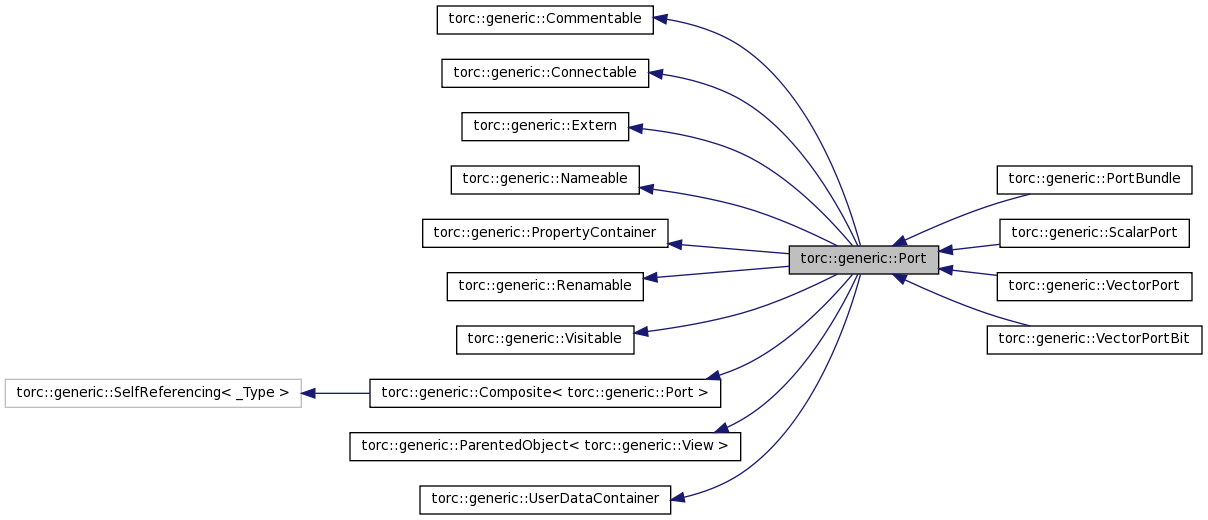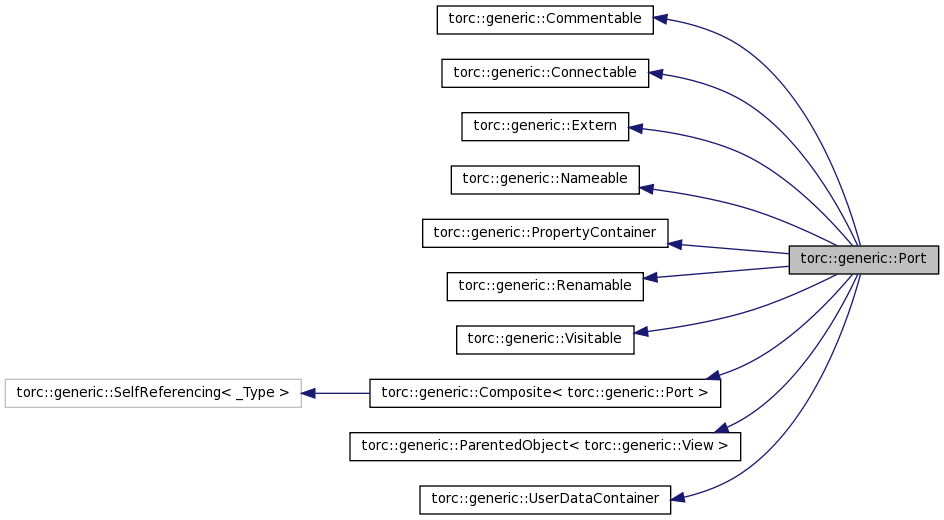torc::generic::Port Class Reference
Interface for an EDIF port object. More...
#include <Port.hpp>


Public Member Functions | |
| const PortDirection | getDirection () const throw () |
| void | setDirection (const PortDirection &inSource) throw () |
| const PortAttributesSharedPtr | getAttributes () const throw () |
| void | setAttributes (const PortAttributesSharedPtr &inSource) throw () |
Private Member Functions | |
| Port (const Port &source) throw () | |
| Port & | operator= (const Port &source) throw () |
Private Attributes | |
| PortDirection | mDirection |
| PortAttributesSharedPtr | mAttributes |
Detailed Description
Interface for an EDIF port object.The Port class acts as an interface for ports in an EDIF cell. A port can be of scalar, vector or bundle type. This class provides a simplified view of all three types of port. To get a handle to an actual port, the client will have to use a Visitor with proper overloads of the visit() function, or dynamic_cast can be used. The latter method is however not recommended. A port object supports storing properties for storing different EDIF properties. See documentation of the Property and PropertyContainer classes for more details.
Definition at line 51 of file Port.hpp.
Member Function Documentation
| const PortDirection torc::generic::Port::getDirection | ( | ) | const throw () [inline] |
| void torc::generic::Port::setDirection | ( | const PortDirection & | inSource | ) | throw () |
| const PortAttributesSharedPtr torc::generic::Port::getAttributes | ( | ) | const throw () [inline] |
Get the attributes of the port. Attributes include dcFaninLoad, dcFanoutLoad_ etc.
- Returns:
- Pointer to PortAttributes object.
| void torc::generic::Port::setAttributes | ( | const PortAttributesSharedPtr & | inSource | ) | throw () |
Set the attributes of the port. Attributes include dcFaninLoad, dcFanoutLoad_ etc.
- Note:
- This method does not check whether prior set of properties exist or not. Newly set property will remove old properties.
- Parameters:
-
[in] inSource Pointer to PortAttributes object.
The documentation for this class was generated from the following files:
 1.5.6
1.5.6